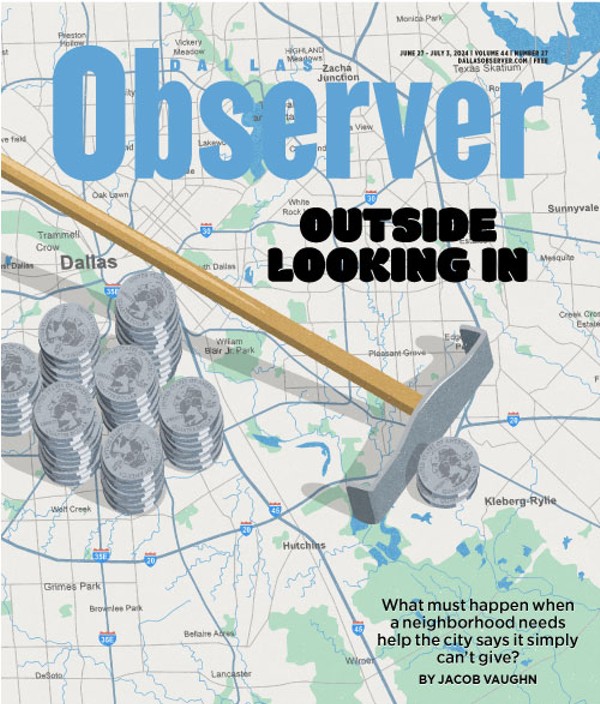“Just in time for Christmas,” Deborah Ines wrote in a Dec. 9 Facebook post. “Scentsy and I got you if you still need gifts.”
Etsy has attracted crafters in droves during the pandemic, with 42% more active sellers compared with this time last year. And for those who can’t or would prefer not to make their own inventory, multi-level marketing companies like Scentsy, Color Street and Rodan + Fields present another path to work-from-home income.
Ines, who is a dual language teacher in the Dallas Independent School District, started selling fragrant wax through Scentsy at the beginning of October. “I found out about it through a friend of a friend that was selling,” Ines wrote in an email to the Observer.
In September she hosted her first “party,” or selling event, where she says she sold over $1,000 in Scentsy products and was inspired to continue.
While Ines has had a positive experience with Scentsy so far, multi-level marketing companies are attracting increasing scrutiny from the Federal Trade Commission (FTC), some of which it says are exploiting the economic insecurity caused by the pandemic.
Multi-level marketing (MLM) refers to a business model in which nonsalaried distributors buy goods from a company and then make a commission on whatever they sell. Most MLM companies also incentivize recruitment by offering to cut you in on the sales of any additional distributors you bring in.
Also known as network marketing or direct marketing, MLM dates back to as early as the 1920s, with companies like Avon. According to the Direct Selling Association (DSA), the trade group that represents MLM, in 2019 it was a $35 billion industry. Texas was only second to California in MLM activity that year, with 1.7 million distributors and $4 billion in sales.
Mary Kay cosmetics, one of the most famous MLM companies, is based in Dallas. In 2018, Direct Selling News listed Mary Kay as the sixth most profitable MLM company in the world, with an annual revenue of $3.25 billion.
MLM companies are often negatively associated with pyramid schemes, an illegal type of MLM. The FTC says the main difference is how distributors are compensated.
“In a legitimate multi-level marketing program, you make money by selling the product, not by recruiting others to join and buy product,” a 2016 blog post on the FTC website reads. “That’s a near-guarantee that you’ll lose money.”
The watchdog group Truth in Advertising reports that in the last 41 years, the FTC has filed cases against 30 MLM companies it determined were pyramid schemes, 28 of which settled or agreed to change their business model.
Its two most recent cases have been against health supplement companies based in North Texas. A case against Neora is still pending, and last year Advocare settled their case for $150 million.
The FTC found that less than 5% of Advocare distributors earned more than $1,000 a year. More than 72 percent made no money at all.
Prior to the settlement, Advocare had voluntarily moved away from the MLM business model. The $150 million went toward compensating distributors who had lost money and buying back unsold inventory from distributors who decided to quit.
During the pandemic, the FTC has redoubled its efforts to root out illegal MLM activity. Since April, they have sent warning letters to 16 companies for making false claims that capitalize on COVID-19 panic.
The claims fell into two categories: claims about the amount of money new distributors could earn, and claims that products could protect against the virus. (Wellness, personal care and home goods make up 67% of products sold by MLM companies).
Four Texas companies received letters from the FTC this year. Of those, three — Pruvit, IDLife and Vivri USA — are based in Dallas-Fort Worth.“The impact of these scams has intensified as scammers take advantage of the COVID-19 pandemic and financial crisis.” – The Federal Trade Commission, in a press release
tweet this
“A great stimulus package, because you get to teach somebody how to go earn $1,730 literally in the first ten days with the business,” a questionable post by Melissa-based Pruvit read.
Just this month, the FTC revealed that Americans lost $150 million to income scams in the first nine months of 2020 and announced a new initiative called “Operation Income Illusion.”
According to the press release, the initiative will continue to crack down on pyramid schemes and other “scams that target consumers with fake promises of income and financial independence that have no basis in reality.”
“The impact of these scams has intensified as scammers take advantage of the COVID-19 pandemic and financial crisis,” the release continues.
Women may be particularly vulnerable to false MLM claims right now. The DSA reports that 74 percent of MLM distributors are women, and studies show that the social and economic consequences of the pandemic are most dire for women.
Even at MLMs that operate legally, making money is a difficult proposition. One reason is that many people who sign up to sell for an MLM start by approaching their family and friends, and there’s a risk of getting stuck with inventory once you’ve exhausted that list.
A 2017 Magnify Money survey of over 1,000 distributors found that working for an MLM pays less than 70 cents per hour.
The DSA acknowledges the low wages associated with MLM in its own way.
“For most Americans involved in direct selling, the revenue they earn is not their primary income but the way to a family vacation or presents for the holidays, or just a little extra spending money,” a fact sheet on their website reads. “In fact, most direct sellers only work part time in direct selling, and have many other jobs.”
The distributors the Observer spoke with did have other jobs and reported being content with the amount of income they made working for their MLM.
“I didn't know what to expect when I got my first check [from Scentsy] so I was OK with it,” Ines says. “On my second check I made sure to get more sales, and I was surprised that the check was bigger.”
Julie Simon works in insurance claims and started selling Color Street nail polish strips in February 2019. Like Ines, she got into it after attending a sales event hosted by a friend.
Both women say they were more motivated by an affinity for the products than money. “I started selling [Color Street nail polish strips] to get them for free,” Simon says.
A July article in Time magazine reported that more than half the distributors at Color Street earned less than $12 a month. “[The money is] more than I thought,” Simon says.
Simon has met with most of her customers through word of mouth or parties, while Ines has mostly sold to family and friends. “My husband also helped me out by telling people about it at work,” Ines says.
Both women say they feel the pandemic has adversely affected sales. “It’s slowed down for sure,” Simon says.
Simon has recruited five people to sell under her, including one during the pandemic, while Ines has recruited none. “I am just starting, but that is a goal of mine,” Ines says.
If you’re thinking about distributing for an MLM, maintaining realistic expectations may be the key.
On its website, the FTC offers a few things to consider first, like whether you know people who would buy the product repeatedly and consistently — not as a favor — and any out-of-pocket business expenses you may incur.
But when it comes to the promise that you’ll make more by recruiting, the FTC gives clear advice. “If you don’t think you can make money selling the product, others probably can’t either.”












